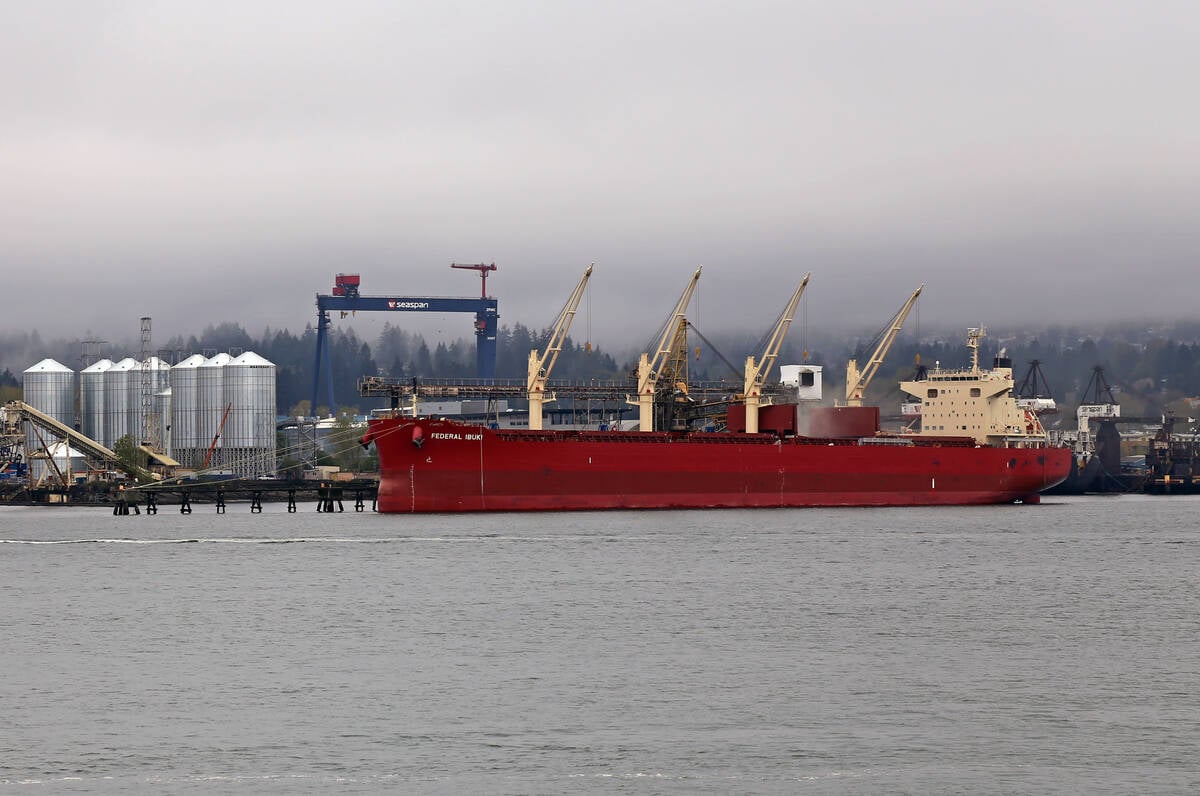The decision by Alberta Wheat Pool and Manitoba Pool Elevators to talk about a merger is the right move but it may be too late, says a grain industry analyst.
“There is potential this could be very positive for both of them … but they should have done this years ago,” said David Schroeder of Dominion Bond Rating Service.
The two pools are “a couple of years behind the industry” and must move quickly to merge and acquire capital in order to improve their operations, he said last week.
Read Also

Vancouver port says it has improved efficiency
Grain movement has been strong at the Port of Vancouver due in part to a new centralized scheduling system.
But the president of Alberta Wheat Pool says there is no air of desperation surrounding the merger talks.
“That’s all nonsense,” said Alex Graham.
Both companies are in good financial shape and boast strong balance sheets, he said. Alberta Pool earned $34 million last year and leads the industry in many key financial indicators, while Manitoba Pool had record profits of $29 million in 1997.
“This is two very strong players coming together,” said Graham. “You can bad mouth it and pooh-pooh it and play it down, but the reality is we’re going to be extremely strong competition.”
Following the announcement of the merger talks, DBRS put a watch on both companies’ credit ratings. Schroeder said a successful merger would probably be positive for the credit rating, while a failure could be negative.
The two pools have disagreed for some time with Schroeder’s annual analysis of the grain industry, saying he is biased against traditionally financed co-operatives and his reports are unduly negative.
In its latest report published in February, DBRS expressed concern about the financial strength of both pools, focusing on what the report described as their limited ability to get capital to finance expansion and upgrading.
Schroeder welcomed the news of the merger discussions last week, saying it’s a natural fit for both companies.
Each would gain access to the other’s export terminals at Thunder Bay and Vancouver, and it would be easier for a merged company to finance expansion in Saskatchewan, something each wants to do.
He said it would be a “natural next step” for a merged company to issue publicly traded shares in order to finance its activities, adding that if the two pools don’t aggressively expand and diversify, their future viability is threatened.
Can’t operate in isolation
“Nobody in this day and age can stay in their little corner of the world and think they won’t be affected by what goes on around them,” he said.
Graham said the two pools are aware of what needs to be done to survive and prosper and are strong enough financially to do it.
“The belief that you cannot be a co-op and also compete is highly incorrect,” he said, adding there are many ways to raise equity and issuing a public share offering is one of the most expensive.
Alberta Pool delegate Arden Ziegler of Vegreville, Alta., said he thinks a merger is a good idea and probably inevitable, and that staying small these days means getting eaten up by the competition.
But he also says things should be kept in perspective: “We’re not going to cause any earth-shaking results by having this merger because we’ll still be small players in the grain industry.”
















